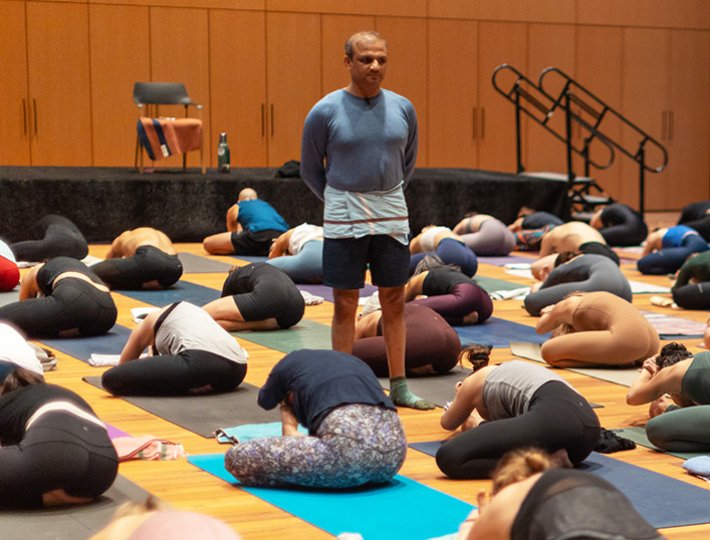Work makes you stressed. Visiting your in-laws makes you anxious. The words are different, but the feelings are similar, which makes it easy to play loose with the terminology to describe signs of anxiety. “Colloquially we use these words interchangeably,” says Goali Saedi, Ph.D., a licensed clinical psychologist in Portland, Oregon, and author of Psychology Today’s “Millennial Media” blog. “But clinically they have distinct meanings.”
General stress is a part of the human condition for most people—75 percent of Americans reported experiencing at least one symptom of stress in the past month, according the 2014 “Stress in America” survey from the American Psychological Association. Anxiety, however, is a clinical disorder, affecting 18 percent (40 million) of Americans age 18 and older, per the National Institute of Mental Health. Before you dismiss the latter as a way-too-serious diagnosis (the word “disorder” can feel heavy), first get the facts.
“Stress can be fleeting and short-lasting,” says Saedi. You might start to feel stressed when you’re asked to do a presentation or you’re running late to pick up your kids. It may last for a little while, then dissipate once the stressor has passed (i.e., when you’re done presenting or as soon as your babies are buckled into the car). You likely experience an ebb and flow of micro-stressors like these all day long—from that early morning scramble out the door to the ping of an e-mail from one of the executives at your company.
Anxiety, on the other hand, is more pervasive and debilitating. “If you’re feeling anxious, like you’re always on edge, that’s stress gone amuck,” says Saedi. For a person who’s anxious, the stress never dissipates. It takes up permanent residence in your brain and body, influencing the way you see everyday events and manifesting as physical symptoms that range from a racing heart to sweaty palms to a full blow panic attack. Anxiety is also a common cause for other seemingly unrelated physical problems, including digestive disorders, headaches, and fatigue.
Related: How Yoga and Meditation Help Me Manage Anxiety
In the moment, stress and anxiety may feel like one-in-the-same, but the truth is, one is a lot easier to shake off than the other. That’s why Saedi says feeling stressed is akin to feeling sad, whereas being anxious is more like being depressed. “Stress is something that you can deal with,” says Saedi. “It’s a day-to-day thing that comes and goes. Anxiety is more like a dark cloud you drag around. It’s a deep and lasting thing that also colors your vision of what’s going on.”
Stress, however, isn’t always fleeting. It can last anywhere from a few minutes to days: Catching your connecting flight, finding out you got the job, or getting an all-clear from your doctor can all help send sky-high stress levels back down. But some life events, such as losing your job or having difficulty getting pregnant, can take a toll for months. Compound all of life’s stressors, big and small, and it starts to make sense why so many people live in an increasingly stressed state. Over time, stress can snowball and turn into a chronic condition. Chronic stress, when ignored, can lead to anxiety. Stressful periods can also add up a lot more quickly than you might think, leaving you more susceptible to developing anxiety.
If you’re constantly worried or on edge, you may want to speak to a therapist. If you are diagnosed with anxiety, there are a litany of treatments they may have you try, including cognitive behavioral therapy (a type of mental health counseling that focuses on identifying, understanding, and changing the behavior patterns) or reframing the way you think about certain situations.
For most people, stress is situational, which means you may be able to curb it on your own. Start by noticing what parts of the day you find most stressful, then work to change your habits or your reactions to help reduce your stress. For example, leaving for work just 10 to 15 minutes earlier may make your morning commute much less hellish.
“As with our physical health, it is imperative that we do preventive care,” says Saedi. “Regular yoga, meditation, exercise, and self-care can go a long way in keeping our stress levels in check.” Journaling is one of the top practices she suggests to stressed out clients, and even simple acts like taking a bubble bath can help you unwind and scale down your stress response. Saedi adds, “Sometimes a pedicure is, in fact, just what the doctor ordered.”









Comments (0)